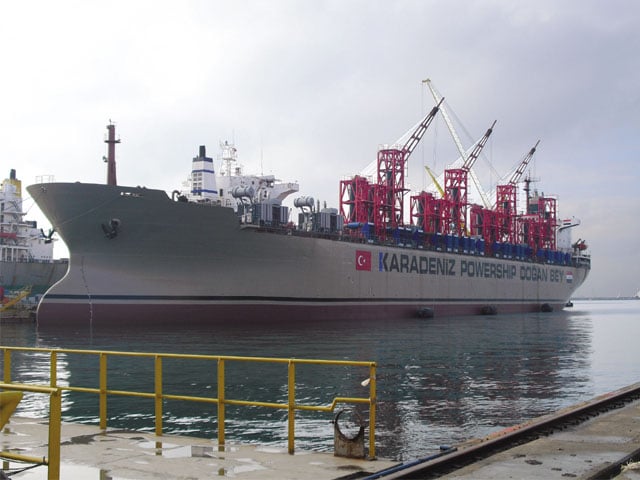
In August 2017, ICSID had announced $900 million award in favour of Turkish company Karkey. Pakistan has already challenged this award. However, both sides did not make public copy of the award. A 310-page copy is available with The Express Tribune for the first time.
The international tribunal while raising serious questions over the 2012 judgement rendered by former chief justice of Pakistan Iftikhar Muhammad Chaudhry in the RPPs case, noted that the Supreme Court proceeded on the basis of petitioner Faisal Saleh Hayat’s erroneous assertion that Pakistan had sufficient generation capacity, despite Pepco’s demonstration that Hayat had mistakenly “compared Power (MW) with Energy (MkWh), which are two different things”.
“Given the improbability that Pakistani authorities would enter into a contract for the supply of energy that was, on Hayat’s hypothesis, totally unnecessary, it is reasonable to expect that a court acting ex proprio motu, and having had the point drawn to its attention, would, at the very least, have sought independent confirmation of Hayat’s assertion. This was not the case.”
Secondly, the tribunal says that the court imposed identical liability on all the RPP sponsors, despite material differences between the procurement, financing, and operational status of the different RPP programmes.
“It is reasonable to expect that a judgement having such serious consequences for those concerned would have defined with some particularity the evidential and legal basis on which each of them, considered separately, was liable to suffer such consequences. The Supreme Court’s judgement does nothing of that sort. In the opinion of the tribunal, this makes its decision arbitrary.”
Last but not least, the tribunal notes that the Supreme Court played an active part in several of the acts attributable to Pakistan and that are presented by Karkey as a general pattern of breaches of the Bilateral Investment Treaty.
It is also noted that the tribunal does not consider itself to be bound, as an international tribunal, by the finding of the Supreme Court that Karkey’s RPP contract was void ab initio.
ICSID rejects corruption charges
The award says that according to Pakistan, because “corruption is endemic” in Pakistan’s political system, the tribunal, in balancing the probabilities, should start from an assumption that it is more likely than not that Karkey was engaged in some form of corruption.
The tribunal finds that the seriousness of the accusation of corruption in the present case, including the fact that it involves officials at the highest level of Pakistani government at the time, requires clear and convincing evidence. There is indeed a large consensus among international tribunals regarding the need for a high standard of proof of corruption. In any event, even if the tribunal were to have applied the “balance of probabilities” standard as suggested by Pakistan, the tribunal’s conclusion would have been the same.
It is also stated that despite Pakistan’s assertion that former additional secretary to ministry of water and power Mr Aslam's testimony proves that Karkey engaged in corruption, under cross-examination he failed to substantiate any of Pakistan’s speculative allegations. This is unsurprising given that neither the Supreme Court nor NAB found any evidence of corruption by Karkey in the course of their investigation of those same allegations.
There was also no witness expressly alleging, let alone, confirming the payment of bribes. Although counsel for Pakistan repeatedly referred to “red flags” and suspicious circumstances after Karadeniz had given evidence, no question regarding fraud or corruption was ever put to Karadeniz in cross-examination.
“Several questions raised by Pakistan are based on alleged acts or omissions by Pakistani government officials which are not proven and if such acts and omissions are established, they may have many other explanations than corruption by Karkey. For instance, what is often described as haste of the prime minister and of the minister for water and power motivated by corruption may just as well reflect their manner of exercising power. The tribunal is unable to find the elements included in Pakistan’s questions “red flags” suggestive of corruption, such as to transfer the burden of proof, still less any positive proof of corruption,” says the award.
Pakistan gets fresh corruption evidences
A senior government official told The Express Tribune that the matter would be rigorously pursued in the ICSID tribunal after gathering strong evidence of corruption in the procurement of a RPP contract by the Turkish company.
He said Pakistan had gathered strong evidence of corruption to establish its case in the international tribunal. The last date for submission is July 26.
The official said confessional statements of former water and power secretary Shahid Rafi and two other officials would also submitted to the tribunal as evidence of corruption in the procurement of the contract by the Turkish company.
Another official said in light of the increasing evidence, it was unlikely that the government would settle the matter out of court.
However, he revealed that there was some progress in the negotiations and both parties were still talking with each other for a settlement before July 26.
A senior lawyer with expertise in pleading cases before international tribunals believed that proving corruption in an international tribunal was extremely difficult and there was no precedent of an ICSID award being set aside on the grounds of corruption.
He also said settlements did not take place overnight and took time. Article 51 of the ICSID Convention allows parties to a dispute to bring to the tribunal any new facts that could decisively affect the award. Now Pakistan has engaged a new legal representation – GST LLP, a Miami-based law firm – to contest the revision proceedings before the ICSID.

















COMMENTS
Comments are moderated and generally will be posted if they are on-topic and not abusive.
For more information, please see our Comments FAQ